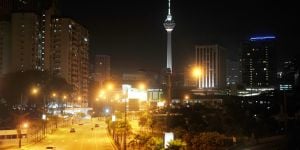Evolution of banking services in Malaysia
Subscribe to the topic
Post new topic
Hello everyone,
With rapid technological advancements, banking services are digitizing at lightning speed. Expats are thus propelled into a new era of options and payment methods, disrupting the traditional banking services of local establishments in Malaysia. An evolution that presents a range of opportunities and challenges on a local scale.
Share your experiences regarding the evolution of bankings services in Malaysia:
To what extent are the latest banking technologies being adopted and utilized in Malaysia? (contactless payments, phone-based payment systems, QR codes, etc.)
What are the advantages and disadvantages?
Are new payment methods emerging in Malaysia? Which ones, and what does it change in your daily life?
What are the advantages of using local bank services versus an international online banking service as an expat?
Are there specific features in banking apps that you find particularly helpful as an expat in Malaysia?
By sharing your experiences and insights, you contribute to a broader understanding of the evolving banking landscape for expats in Malaysia.
Thank you for your contribution.
Cheryl
Expat.com Team
There are technological advancements in bank. However, opening a bank account for expats here in Malaysia is a complicated process with many red tapes
Banking is becoming very dismal and privacy-intrusive.
I know there are many of you who love tech, tech and more tech. You suffer painful withdrawal symptoms if there arent new tech features added daily. Im not one of those.
Over time Ive had accounts at several banks, the oldest being Maybank which I still have. Gradually, lately, Maybank, for example, has forced people into phone apps to accomplish all transactions and for the past year I have been unable to properly set up the app because of tech errors which means im blocked from the bank and therefore my money. Repeated requests for help have not resulted in a resolution and, being in US right now Im not even able to appear at a counter to close the account. Im angry and disgusted at the extremely poor treatment all in the name of tech progress.
The banks claim tech progress is required to stop hackers and thieves but this is something of a lie. They want to know absolutely everything about you, to track you, to know where you are and what you are doing and who you are with at any given time. And this is only the beginning because AI is going to take over all of this and together with cashless society rising, you are going to be blocked from your money unless your social credit score is high enough.
My accusation isnt without foundation. After all, at least some of you have faced gestapo-ish interrogations at your bank when you have been faced with a blocked wire-transfer deposit until you have satisfied the bank as to where that money really came from and physical proof you have paid income taxes on it. How you earn your money, not simply the money itself, is an issue and a bank hurdle. If I dont like how you earn your money I may never let you deposit it and use it.
Malaysia sees itself at the forefront of China-style societal control and so maybe within five years, banking wont even resemble what people have today. While many of you think this is all wonderful, at least on the false basis of "you have nothing to fear if you've done nothing wrong," others do not and this will hugely effect an expats ability to comfortable stay in the country -- or any country.
I like advances in tech when it actually helps me, when transactions can be faster and smoother but the promise of that is a facade and I dont know where that leaves us.
I retired in Malaysia two years ago and I still have bank accounts at US. I like the fact I can still easily use them.
The main issue is not the banking technological advancements but rather the complication of opening a bank account here in Malaysia for expats. Yes you can open with your Malaysian spouse but don't dare asking to open an individual account for yourself.
Yes technological advancements can be good, but it needs to go hand in hand with process and procedural advancements as well. It is like advancing a car to go 100 miles an hour but keep trolly wheels on it.
If you retired in Malaysia two years ago, under what type of residency visa do you have? Before I moved to Malaysia back in 2003, I had opened an HSBC Premier account in the UK a few months earlier. With one HSBC Premier account you are entitled to open other HSBC Premier accounts in almost every country and it includes Malaysia. The only exceptions as far as I know are with Taiwan and Indonesia. In fact, just based on having that account I was able to get two credit cards with high spending limits and several mortgage loans without having to prove any source of income. It might be more difficult nowadays to get the home loans but as I said with an overseas HSBC Premier account back home you are almost automatically entitled to open accounts in most other countries. The only requirement is to have a certain amount of funds in your account back home which can be savings, fixed deposits, other investments etc. When you open an HSBC Premier account in Malaysia the reqired amount of savings is lower than in the UK so you can switch and make the HSBC Malaysian account your primary Premier Account. In Indonesia it is even lower, so I have switched my primary HSBC Premier account to Indonesia. If you fail to maintain the required amount of funds then you get charged a monthly penalty which is lower in Indonesia than in the UK or Malaysia. Also, once you have your Premier account in Malaysia with credit cards etc, you can always downgrade to an ordinary account. One final thing about HSBC Premier is that you can make global transfers with zero charges. So I have GBP foreign currency accounts with HSBC both in Malaysia and Indonesia.
Secondly, if you have MM2H you are entitled to open accounts with most local banks. You just need to show them your confirmation letter for the MM2H and they will open accounts with you. Same goes for buying a new car, with the MM2H letter you automatically can buy the car tax-free.
This is my experience in Malaysia. The regulations might have changed since I left Malaysia in 2015, but this is how it used to be.
All my bank accounts are in my own name. My Indonesian wife has her own accounts and uses my banking Apps daily for things like building supplies, shopping at the supermarket, plane tickets, hotel bookings etc, but I like to be in control of things such as overseas transfers, incoming pension payments and so on so absolutely need to have accounts in my own name.
@dianaadrr019 What Are the Financial Risks of Day Trading? The most obvious risk is losing money—sometimes all of it. Few day traders consistently earn a profit over time. Therefore, consider spending your time and money on other, more productive activities and types of longer-term investing.
Trading is not that easy 90% people lose money in trading, if it was that beneficial and risk free the world billionaires will not invest money in real estate or industries or other businesses.
Coming from a UK perspective I had a bit of culture shock when taking over my elderly parent’s banking 🙂. I see Malaysian banking as evolving quickly, and in some cases leapfrogging legacy technologies. But as a consumer my greatest concern remains security.
I am a Malaysian living in UK and after almost 30 years away I am now returning regularly to look after my mum. I have taken over her finances but experiencing Malaysian banking has been a bit of a culture shock.
To me, many screens appear very ‘busy’ with overload on graphics, particularly apps and websites from local banks. I was also shocked to receive SMS ads sent by banks inviting customers to click on links - this is widely known to be an insecure practice. Luckily the industry seems to be phasing them out but some banks still use SMS for two factor authentication.
Digitisation in Asia is mobile first and it’s been fun to experience this in Malaysian banking first hand. For example, you can sign up for many services without an email and this is mind boggling to me, but then who uses email in Asia these days? I signed up for a prepaid BigPay card (which I love) without an email address. It’s mobile first, email as an afterthought. Another example of mobile first - Citibank has an awesome app and terrible website branding (functionality is good). It’s clear all the development focus was on the mobile app. I still like using a website for big transactions (eg overseas transfers) but this is clearly legacy behaviour. In Asia it's apparent most customers expect everything to be in the app and I’m starting to learn that sometimes the functionality I wanted is in the app rather than the website!
Banking app functionality is great but user testing could be refined: In online banking, functionality for most services seems to be there but I’ve sometimes found it hard to navigate my way around. For example I wanted to shift some funds into a fixed deposit (Hong Leong Bank); I was convinced it could be done but could not figure out how, either on the website or in the app - but in fact it was there in plain sight - it just looked like a graphic that didn’t do anything.
And finally, despite the huge shift to online services, there’s still a tradition of “it’s better to go talk to the bank”. I’ve still found it easiest to resolve anything by dropping by the bank and speaking to customer service face to face. Whereas in UK even if you’re struggling it's unlikely you can sort it out by going to the bank.
QR codes? Cashless? Duitnow?
I finally got onboard the whole payment with QR codes thing. Personally I’m not convinced it’s an improvement for the consumer. It’s cheaper for the seller but not easier for the buyer. As a buyer, paying for something via ”payWave” is literally as easy as waving your card (or phone), whereas with QR codes I have to log in, type in the amount, and authenticate the payment.
BUT QR codes have helped a lot of small businesses get onboard with cashless transactions which is great. The Economist recently reported that in 2021 up to 50% of all transactions in Malaysia were cashless.
Personally I dislike so called “walled e-payment systems” such as Touch n Go, or GrabPay. Basic services we all depend on should not be controlled by a profit oriented company. Therefore I favour Duitnow, an open payment system, for QR code payments, although it’s a shame about the latest Duitnow [link moderated]. It will be interesting to see if sellers stop providing Duitnow QR codes, and a shame if they do.
Malaysia needs to debate as a society the pros and cons of this headlong rush to cashless. There are undoubtedly benefits but there are also disadvantages. I have seen very little debate to date.
Bank to bank transfers - confusing. I was surprised to be charged for a personal bank to bank transfer - until I found out I’d done it the wrong way (Interbank Giro) rather than instant transfer (Duitnow). Who still needs IBG?
Finally, sadly, scams and poor security measures abound and I continue to have security concerns. Credit card details were stolen during a hack of iPay88 in 2022, and sites using FPX payments are regularly spoofed. Online and cashless is convenient but I think using a prepaid debit card is also a great safety measure.
Earlier this year I was in the UK and used my Malaysian HSBC card, that was before I'd managed to set up a new HSBC account in the UK which I managed in mid-March. So while I was in the UK I had three unauthorized payments charged to my Malaysian credit card for the months of Feb/Mar & April 2023. The amounts were only about £25 per each charge. When back in Asia I cancelled the credit card in April this year and started the process to try to get those three charges rreversed. It's now October and despite numerous communications with my HSBC account manager, I still have not been refunded.
I'm going to call up the bank today and see what is going on. My account manager has not replied my last few text messages and emails to I am wondering if she has left the bank.
@wyngrove60
I was technically approved for MM2H prior to Covid but subsequently got locked out like everyone else and thus was not able to complete the application process until my wonderful Penang agent reached out to me in late 2021 to say that he may be able to reactivate my application. Talk about an agent who was worth his weight in gold!!!! The timing could not be more perfect as I was still working then and had qualified for a paid month sabbatical that I used to go to Penang and take care of everything.
My wife already had a HSBC account here in the US, so when I determined that HSBC was present there in her home country of Malaysia I of course opened accounts too, thinking (or hoping) that having that connection would speed things up or make the fixed deposit transfer not only faster but safer. Well, the opening of the international Premier accounts was not exactly easy. I had to engage with the International division that was in a different time zone. Dealing with the local branch was also a hassle since their operating hours were limited. Only because my agent was able to find one but the first few HSBC branches they contacted turned me down for that FD account. I was fortunate that they finally found one and they finally was able to help me with the opening of various accounts (FD, other savings accounts and credit cards accounts).
What worries me in general about banking not only in Malaysia but everywhere though is the slow but almost sure demise of the brick and mortar branch office. I mean all of the big US banks here are slowly going away. Yes, one can do some transactions online but sometimes it is just more comforting to have a banker physically meet with you to go over whatever your needs are. Gosh, I suppose one day we all may not complain about tiered service charges for physical in person appointment needs with your bank representative.
@wyngrove60
Good luck on that, I feel for you. It starts as small transactions but the moment you know it’s compromised it is stressful. You might get further if you pop in to see the bank manager? Face to face still gets you somewhere 🙂
There is a consumer credit act in Malaysia which sets out the bank’s responsibilities for unauthorised transactions. Unfortunately though, enforcement is lax and banks appear able to shift their responsibilities and the burden of proof onto the customer with ease.
(As you probably know in the UK under UK law any unauthorised transactions on your card would be protected as part of the Consumer Credit Act and Section 75 - the onus would be on the card provider and you would get a refund and immediate action.)
My UK card has been skimmed 3 separate times. Despite knowing it would be sorted it was totally stressful each time. So in my view the stress of having a large credit line compromised without recourse to refund is not worth the points that Malaysians hanker after. Now I use the card for large transactions and something else for day to day cashless payments 😊.
Well I called up HSBC Malaysia today and they will handle it, and I have a case number. They should get it sorted out within this week. It seems also that my relationship manager is no longer my relationship manager, perhaps she has quit the bank, and that's why she hasn't been responding to emails and whatsapp messages.
Anyway, the three amounts were small and I now feel that something will be done. Importantly, I still have all the proof of submitting my application for the dispute by email and whatsapp messages with the relationship manager, so that is important.
Articles to help you in your expat project in Malaysia
 Driving in Malaysia
Driving in MalaysiaYou are moving to Malaysia and want to drive for work or travel there? Follow our guide!
 Kuala Lumpur's neighbourhoods
Kuala Lumpur's neighbourhoodsKuala Lumpur is a real megalopolis, surrounded by suburbs and neighborhoods so different from each other that they ...
 Internships in Malaysia
Internships in MalaysiaAre you a student or recent graduate who wishes to develop your expertise while experiencing a work environment ...
 Buying property in Kuala Lumpur
Buying property in Kuala LumpurWhen you plan to move to another country or another city, your first concern is undoubtedly where you are going to ...
 Expat death in Malaysia
Expat death in MalaysiaThe loss of a loved one is always a painful ordeal, but also often complicated for those left behind, especially ...
 Moving with your pet to Malaysia
Moving with your pet to MalaysiaIf you have a cat or a dog that you cannot part with, transporting it to Malaysia is an important decision. ...
 Phones and Internet in Malaysia
Phones and Internet in MalaysiaMalaysians are known to be social media addicts, so there's no shame if internet access is one of your main ...
 The Malaysian lifestyle
The Malaysian lifestyleMalaysia is such a melting pot of geographical, cultural and social diversity that there is something for ...
Find more topics on the Malaysia forum



